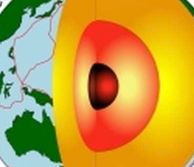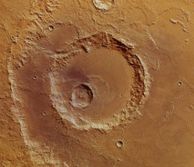We explore Earth, Mars and Venus and try to solve puzzles relating to all planetary and solid bodies (including moons, asteroids, comets and meteorites) in space. We study the Earth over deep time, to help understand the inhospitable landscapes of Mars and Venus, and the likely evolutionary pathways of planets, to reveal their secrets.
We look at space dust particles, tracing their origins from ancient stars or asteroid collisions. We also investigate the processes and phenomena we see throughout the vast expanse of space. Our research reveals the workings of global systems in the past, present and future, to understand how planetary bodies have evolved, and what lessons they hold for us on Earth.
Some of our current and recent projects focus on:
- Search for evidence of conditions for life on Mars
- Stablishing the presence and longevity of water on rocky planets
- The cosmochemistry and significance of meteorites in solar system evolution
- Understanding active volcanism and surface processes on Venus
- Understanding how Earth's cryosphere and hydrosphere have changed through time (in collaboration with our Ocean and Climate teams)
- Exploitation of Earth Observing satellite image data to solve global environmental challenges
- Development of next generation methods and approaches to the understanding, improving and extracting information from vast Earth and planetary science datasets
Associated Research Groups
Associated events and seminars
You can see all previous and forthcoming seminars via the ESE Events and Seminars pages.
Associated members of staff
Professor Jan Cilliers
Professor Jan Cilliers
Chair in Mineral Processing
Professor Gareth S Collins
Professor Gareth S Collins
Professor of Planetary Science
Dr Matthew J Genge
Dr Matthew J Genge
Reader in Earth and Planetary Science
Professor Sanjeev Gupta
Professor Sanjeev Gupta
Professor of Earth Science
Dr Kathryn Hadler
Dr Kathryn Hadler
Honorary Lecturer
Dr Philippa J Mason
Dr Philippa J Mason
Senior Lecturer
Professor Adrian R Muxworthy
Professor Adrian R Muxworthy
Professor of Earth and Planetary Magnetism
Professor Mark Rehkamper
Professor Mark Rehkamper
Professor of Isotope Geochemistry
Professor Mark A Sephton
Professor Mark A Sephton
Professor of Organic Geochemistry





